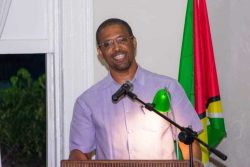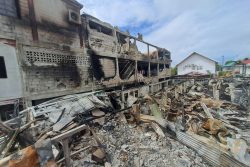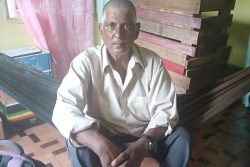PORT-AU-PRINCE (Reuters) – Haiti yesterday installed a Provisional Electoral Council in a key step toward averting a constitutional crisis after weeks of protests and political uncertainty.
The swearing in of the nine-member council representing different sectors of society took place at the Supreme Court shortly before a United Nations Security Council mission was due to arrive in Haiti.
“It’s a new step for the country on the road to democracy,” said Prime Minister Evans Paul, referring to the new electoral body. “Democracy does not work without elections,” he said.
Haiti’s parliament was dissolved last week after the failure to elect new members, leaving President Michel Martelly running the country by decree.
Haiti has a long history of coups, uprisings and dictatorships and the dissolution of parliament raised fears that it was again on a slippery slope toward violent unrest.
The impoverished Caribbean nation has not held legislative or municipal elections for three years, and is due for a presidential election at the end of this year when Martelly’s term runs out.
Earlier this week Martelly named a new cabinet as he tries to end street protests against his rule, but opposition leaders said he had broken a promise to create a consensus government.
The choice of the electoral body was not without controversy, though overall the council’s composition met with broad approval.
The representative for the women’s social sector, Yolette Mengual, was opposed by critics who said she was too closely associated with Martelly.
The prime minister urged the council members to keep the electoral costs down. “We cannot always make elections and see that it is others who pay for us,” he said.








